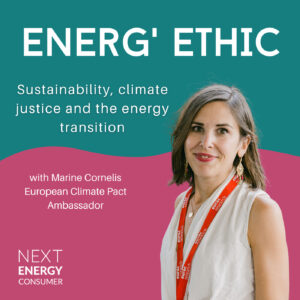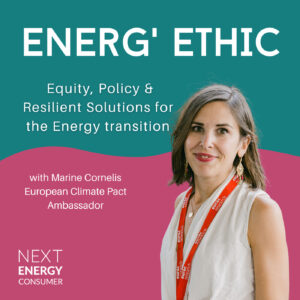A fascination for the African continent coupled with a background in electrical engineering led Nicolas Saincy to co-found Nanoé in Madagascar in 2017. Nanoé’s ambition is to offer a third way in the electrification landscape in rural Africa by providing a solution combining respect for the environment and sustainable development, digital technologies, and social entrepreneurship.
Nicolas denounces the environmental impact of cheap solar kits, which he says “are transferring to the final user a lot of risks that has usually taken by the energy provider like material service breakdowns”.
Instead, he proposes a vision of “lateral” electrification, consolidating access to electricity through the interconnection of nanogrids (connecting a few houses), in areas where the primary grid will probably never arrive. In short, Nanoé’s model enables the “progressive building of decentralised, decarbonised and smart power infrastructure that are able to support the economic and social development of the continent”.
To do this, Nicolas relies on networks of entrepreneurs trained by his teams, often young people lacking professional opportunities. Nicolas talks about his difficulty recruiting women entrepreneurs, even though women make up half of the management team.
Nanoé is a member of the EURICA project, a member of LEAP-RE, the Long-Term Joint European Union – African Union Research and Innovation Partnership on Renewable Energy, an EU-supported programme to improve access to electricity in Africa.
Reach out to Nicolas on LinkedIn or through Nanoé’s website.
Support Energ’Ethic on Patreon https://patreon.com/Energethic



